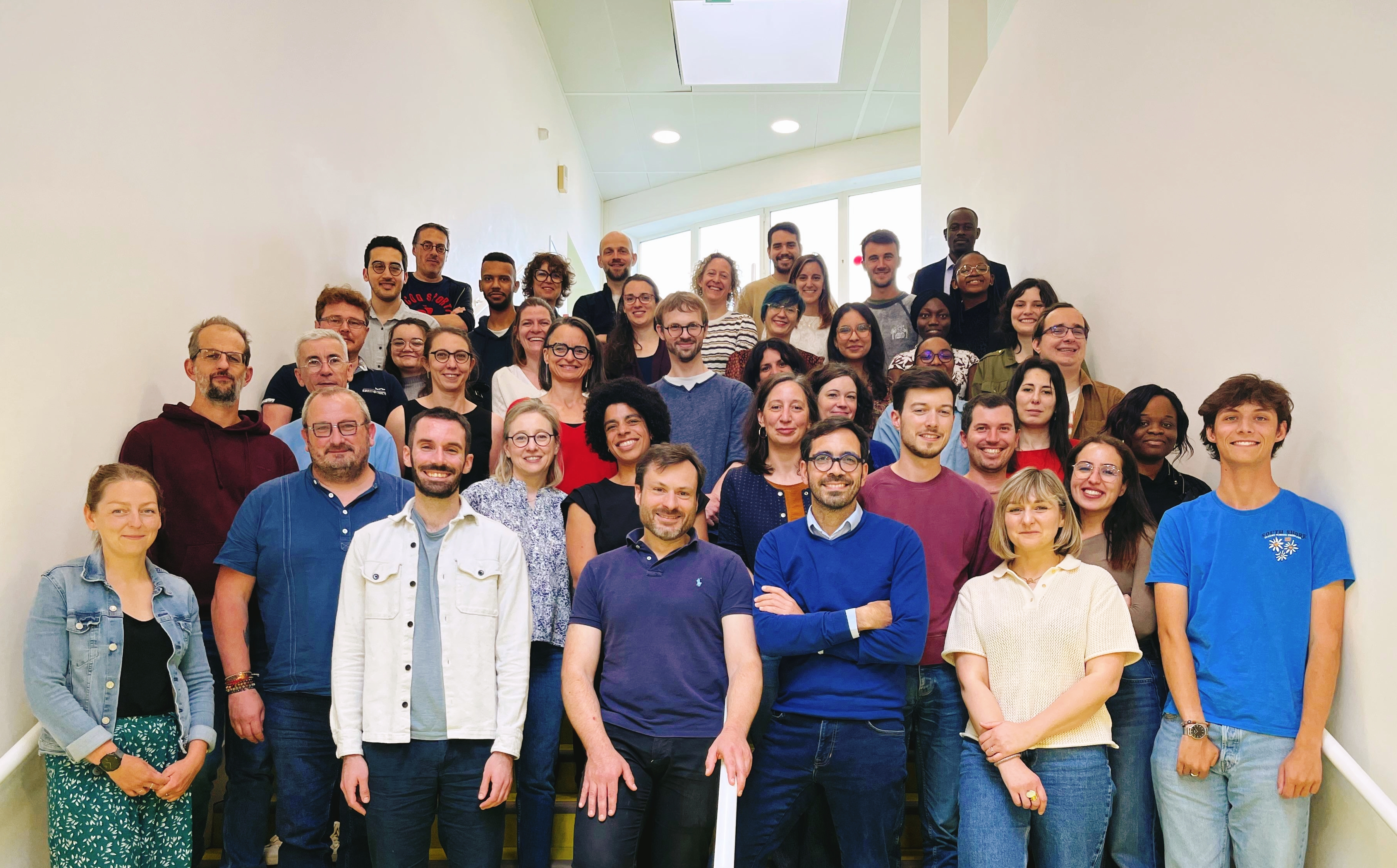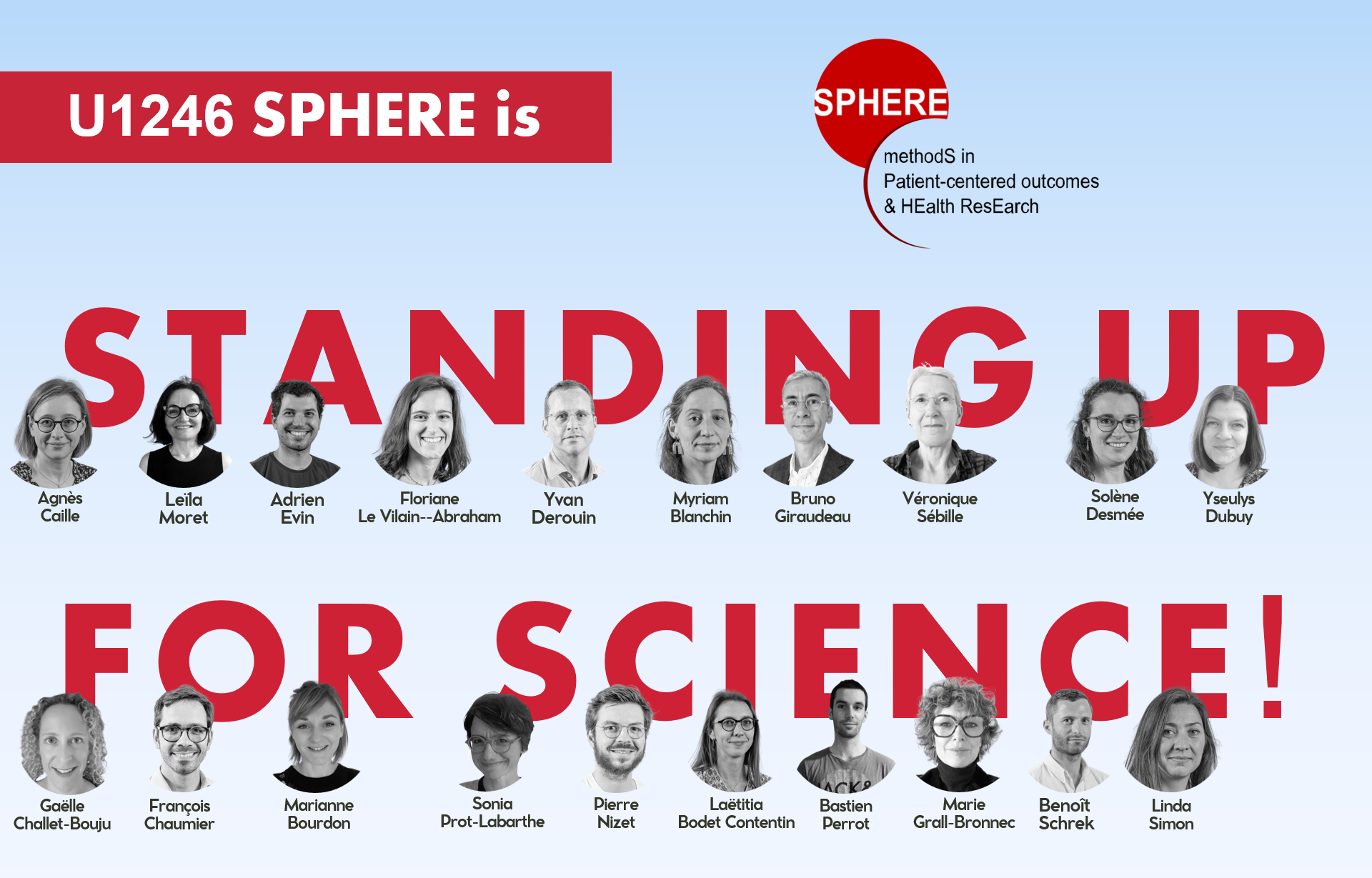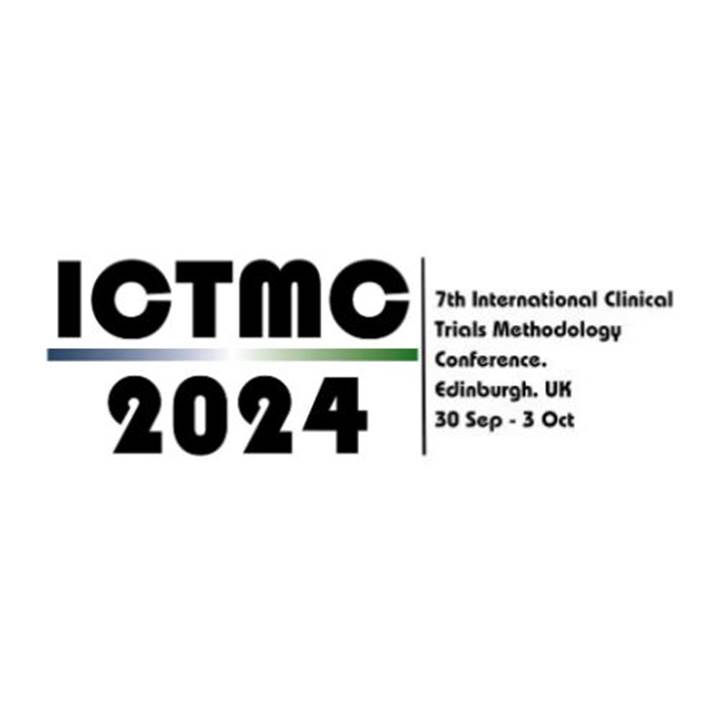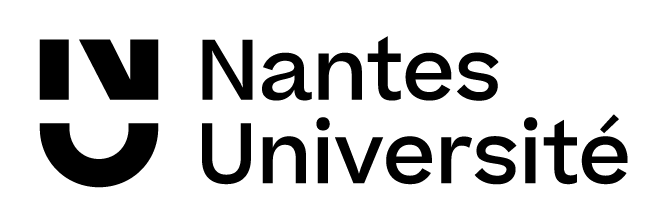U1246 SPHERE
SPHERE is a multidisciplinary unit that seeks to develop and validate methods that can be used in clinical or epidemiological studies.
The philosophy that drives the SPHERE unit is that the patient must be considered as a whole, i.e. taking into account his/her environment, and integrating his/her perceptions, experience, and wishes.

4 axes of research
Our latest news

SPHERE Summer Science Day in Tours
On Thursday 5 June 2025, all the members of SPHERE met up in Tours!
The morning's programme included a review of the unit's flagship projects over the last few years, which gave rise to a wide range of discussions. 🗣️
After a convivial lunch, the afternoon was devoted to presentations on a variety of subjects:
🧑🎓 Presentation by new doctoral students of their thesis topic
🔎 Scientific projects or work (interdisciplinarity in the context of end-of-life care, creation of a well-being and safety scale for patients ventilated in intensive care, or patient-centred assessment criteria for evaluating post-resuscitation syndrome)
👦News from the unit's Young Researchers group
🌏Feedback from the ecological transition working group
A day rich in discussions and exchanges!

SPHERE expresses its deep commitment to academic and scientific freedom and the dissemination of knowledge and supports the 'Stand Up for Science' movement

International Clinical Trials Methodology Conference (ICTMC) 2024 : Jules Pereira Macedo won the title for best student oral presentation !
The 7th ICTMC congress took place from September 30 to October 3, 2024 in Edinburgh. An international congress bringing together analysts, methodologists, researchers and clinicians presenting their work on methodology in clinical trials. Jules presented his work on “Estimation of a risk difference in a cluster randomized trial” and won one of two titles for best student oral presentation.
